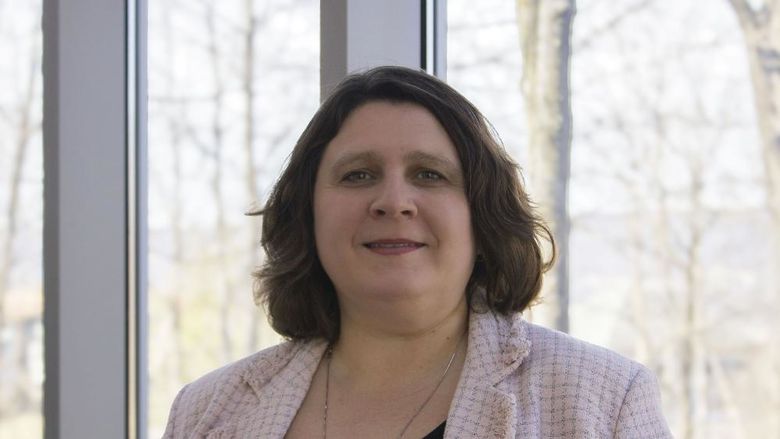
Penn State Scranton faculty Melissa LaBuda, assistant teaching professor in human development and family studies (HDFS), and Ray Petren, assistant professor of HDFS.
DUNMORE, Pa. — Penn State Scranton professors Ray Petren, assistant professor of human development and family studies (HDFS) and Melissa LaBuda, assistant teaching professor in HDFS, recently presented their research on parental role changes following separation, at the National Council on Family Relations (NCFR) in San Diego, California.
For their research project, “I Want to Make Sure I’m Doing What it Takes: Parental Role Changes Following Separation,” the pair interviewed recently separated and divorcing parents about changes in their roles following separation from their partners.
Their presentation was co-authored by Penn State Scranton HDFS student Mike Anthony. Maria Iacobelli and Jillian Kochmer, research assistants in HDFS at the time of the study, also worked to support this project (both have since graduated).
The researchers found that parents experienced substantial uncertainty regarding the roles they should play in the lives of their children while they experienced new personal circumstances, changing family relationships, and pending legal decisions regarding child custody and the division of assets shortly following separation.
“Despite facing uncertainty, parents perceived a pressing need to make the right decisions, which they viewed as having long-term consequences for child adjustment and family relationships,” Petren explained. “Whereas some parents developed a new sense of themselves in response to these challenges, others struggled to re-define themselves as parents and people.”
The team also discovered that the process differed for parents in three groups: those who were primary parents both before and after the separation; those who became primary parents after the separation; and those who perceived that they may lose their relationship with their children.
“From the beginning, Dr. Petren was the expert in this area of human development research,” LaBuda said. “What I found fascinating was the parents always striving to find ways to meet the needs of their children, while trying to figure out who they were without their former partners.”
“Previous research has not examined changes in parents’ roles shortly following separation,” Petren said. “Divorce education programs are now mandated for divorcing parents in many states, and these programs are typically attended by parents who are recently separated.
Findings from this study suggest that divorce education programs should attend to the unique challenges of parents during this formative period to help them adopt new roles that support positive child adjustment and family functioning. One-size-fits-all approaches to divorce education may be limited, according to the researchers.
NCFR is the premier family relationships research organization in the United States.
Petren and LaBuda will also be presenting this work and other research at the Annual Meeting of the Association of Family Conciliation Courts in Toronto, Canada, in May, with Anthony Ferraro, a colleague from Kansas State University.



